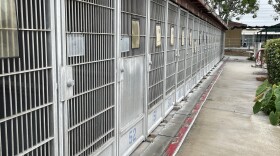The fate of the largest economic bailout in American history appeared less certain Tuesday, as lawmakers said the plan still lacked detail and had not yet been properly explained.
While some version of the proposal is still likely to receive congressional approval, lawmakers appeared to balk at having any plan finalized this week as well as at other key details.
"This proposal is stunning and unprecedented in its scope and lack of detail," said Connecticut's Christopher Dodd, chairman of the Senate Banking Committee.
"It is not just our economy at risk but our Constitution as well," Dodd said, because the plan would allow the Treasury Department to spend $700 billion "with impunity."
Federal Reserve Chairman Ben Bernanke and Treasury Secretary Henry Paulson urged the Senate Banking Committee to quickly pass a $700 billion financial bailout, warning that a delay could be disastrous to the U.S. and global economy.
Both regulators made the case that the proposal would be cheaper for taxpayers than letting financial markets further collapse.
"I'm angry by the things that got us here," Paulson said. But "by far the greatest protection for the American taxpayers is having this be effective. The consequences if we don't do anything are worse."
The Bush administration wants lawmakers to approve the bailout package by the end of the week, although that appeared ambitious even before Tuesday's testy hearing.
Some lawmakers expressed skepticism about the size of the bailout; one called it a "bet" that a governmental infusion of capital into the economy would help abate the mortgage crisis at the root of the current crisis.
Sen. Mike Enzi (R-WY) said the plan would cost $2,300 per taxpayer. "This committee would not be doing its job if that were allowed to happen," Enzi said.
Essentially, the Bush administration's rescue plan would give the Treasury Department broad authority to buy as much as $700 billion worth of mortgage assets held by banks, Wall Street firms and other financial institutions. It would also allow the Treasury secretary to oversee the assets in any way he or she sees fit. That includes the ability to go outside normal government contracting practices to hire private companies to manage them. Lastly, the plan would require the government to report to Congress within three months and every six months thereafter, but it would shield the program from judicial review.
Paulson has left out many details of how he expects the historic plan would be implemented, saying it's imperative that the administration be allowed to hit the ground running and not be stymied by additional congressional restrictions or mandates.
Still, lawmakers hammered away on several key questions: How bad are the assets the government is being asked to buy? Would the plan allow the government to take an equity position in companies that participate in the bailout? Why should the Treasury secretary be given nearly unfettered oversight of the process?
Throughout the hearing, Paulson stood his ground. He said approval of the plan would "avoid a continuing series of financial institution failures and frozen credit markets that threaten American families' financial well-being, the viability of businesses both small and large, and the very health of our economy."
Next up: the House Financial Services Committee is hosting Paulson and Bernanke on Wednesday, where topics such as executive compensation and additional mortgage debt relief are likely to get more attention.
Democratic presidential nominee Barack Obama said Tuesday that if he is elected, the massive bailout package being negotiated to rescue Wall Street will very likely force him to delay some of the spending programs he has advocated on the campaign trail.
Obama acknowledged that some of his proposals for health care and education reform, improvement to the nation's infrastructure and investment in a new "green" energy sector might have to be phased in.
Republican nominee John McCain hasn't made specific comments about the impact of a bailout on his presidential agenda, though he did say over the weekend that he still plans to be as ambitious as before.
Stocks were up slightly Tuesday after a drop Monday caused by concerns about the bailout plan's implementation.
Copyright 2022 NPR. To see more, visit https://www.npr.org. 9(MDAzMjM2NDYzMDEyMzc1Njk5NjAxNzY3OQ001))






